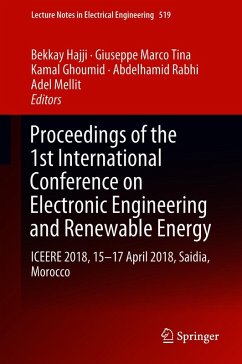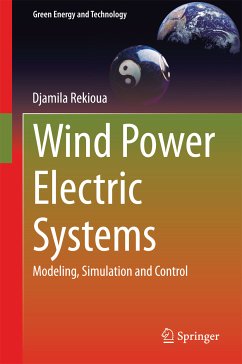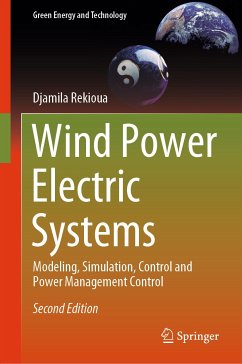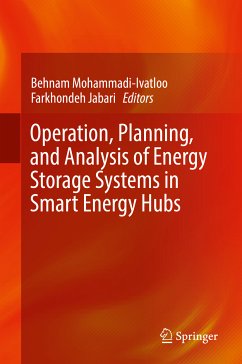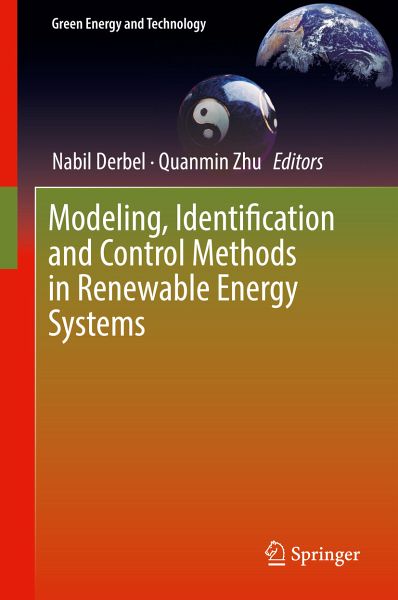
Modeling, Identification and Control Methods in Renewable Energy Systems (eBook, PDF)

PAYBACK Punkte
52 °P sammeln!
Most of the research and experiments in the fields of modeling and control systems have spent significant efforts to find rules from various complicated phenomena by principles, observations, measured data, logic derivations. The rules are normally summarized as concise and quantitative expressions or "models". "Identification" provides mechanisms to establish the models and "control" provides mechanisms to improve system performances.This book reflects the relevant studies and applications in the area of renewable energies, with the latest research from interdisciplinary theoretical studies, ...
Most of the research and experiments in the fields of modeling and control systems have spent significant efforts to find rules from various complicated phenomena by principles, observations, measured data, logic derivations. The rules are normally summarized as concise and quantitative expressions or "models". "Identification" provides mechanisms to establish the models and "control" provides mechanisms to improve system performances.
This book reflects the relevant studies and applications in the area of renewable energies, with the latest research from interdisciplinary theoretical studies, computational algorithm development to exemplary applications. It discusses how modeling and control methods such as recurrent neural network, Pitch Angle Control, Fuzzy control, Sliding Mode Control and others are used in renewable systems. It covers topics as photovoltaic systems, wind turbines, maximum power point tracking, batteries for renewable energies, solar energy, thermal energy and so on. This book is edited and written by leading experts in the field and offers an ideal reference guide for researchers and engineers in the fields of electrical/electronic engineering, control system and energy.
This book reflects the relevant studies and applications in the area of renewable energies, with the latest research from interdisciplinary theoretical studies, computational algorithm development to exemplary applications. It discusses how modeling and control methods such as recurrent neural network, Pitch Angle Control, Fuzzy control, Sliding Mode Control and others are used in renewable systems. It covers topics as photovoltaic systems, wind turbines, maximum power point tracking, batteries for renewable energies, solar energy, thermal energy and so on. This book is edited and written by leading experts in the field and offers an ideal reference guide for researchers and engineers in the fields of electrical/electronic engineering, control system and energy.
Dieser Download kann aus rechtlichen Gründen nur mit Rechnungsadresse in A, B, BG, CY, CZ, D, DK, EW, E, FIN, F, GR, HR, H, IRL, I, LT, L, LR, M, NL, PL, P, R, S, SLO, SK ausgeliefert werden.



